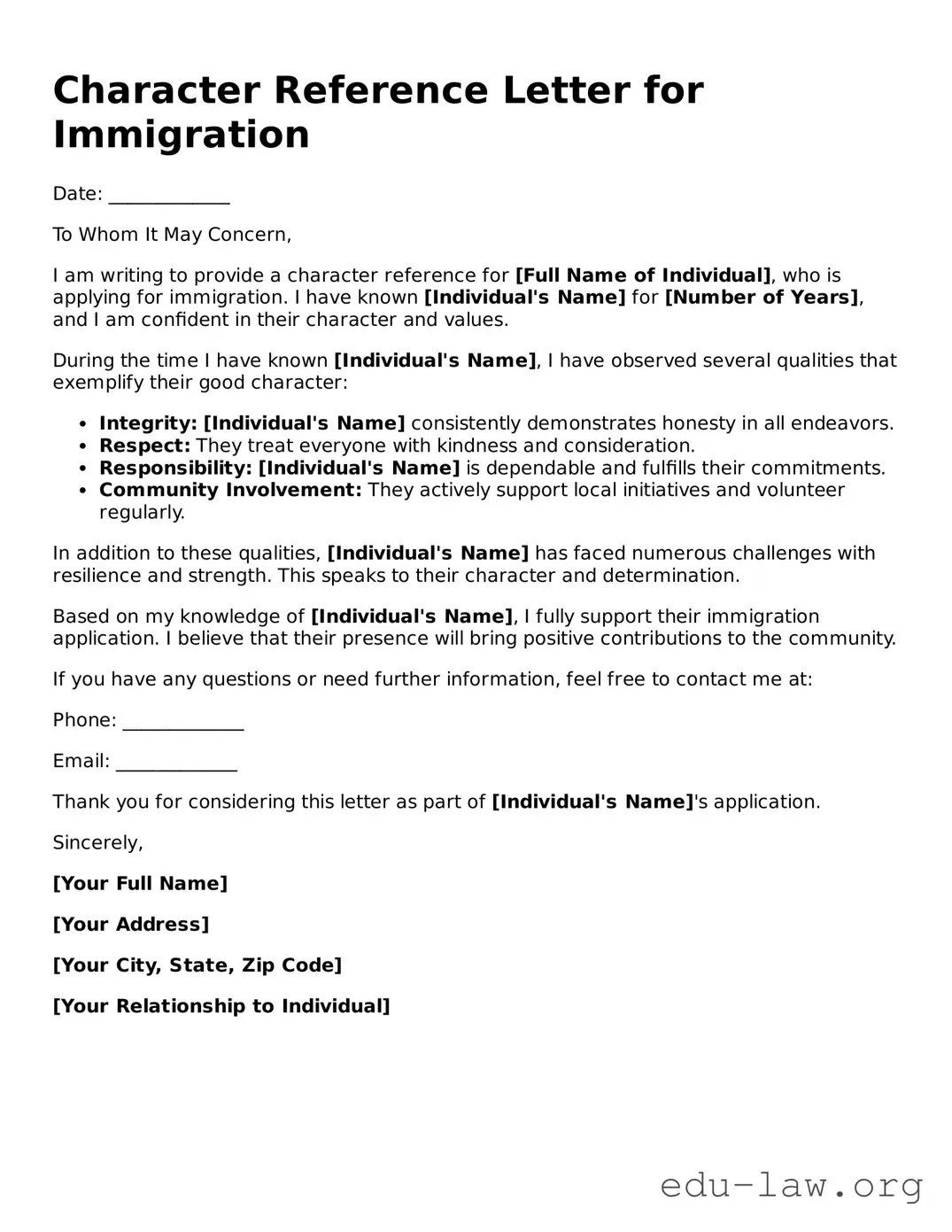Character Reference Letter for Immigration
Date: _____________
To Whom It May Concern,
I am writing to provide a character reference for [Full Name of Individual], who is applying for immigration. I have known [Individual's Name] for [Number of Years], and I am confident in their character and values.
During the time I have known [Individual's Name], I have observed several qualities that exemplify their good character:
- Integrity: [Individual's Name] consistently demonstrates honesty in all endeavors.
- Respect: They treat everyone with kindness and consideration.
- Responsibility: [Individual's Name] is dependable and fulfills their commitments.
- Community Involvement: They actively support local initiatives and volunteer regularly.
In addition to these qualities, [Individual's Name] has faced numerous challenges with resilience and strength. This speaks to their character and determination.
Based on my knowledge of [Individual's Name], I fully support their immigration application. I believe that their presence will bring positive contributions to the community.
If you have any questions or need further information, feel free to contact me at:
Phone: _____________
Email: _____________
Thank you for considering this letter as part of [Individual's Name]'s application.
Sincerely,
[Your Full Name]
[Your Address]
[Your City, State, Zip Code]
[Your Relationship to Individual]
